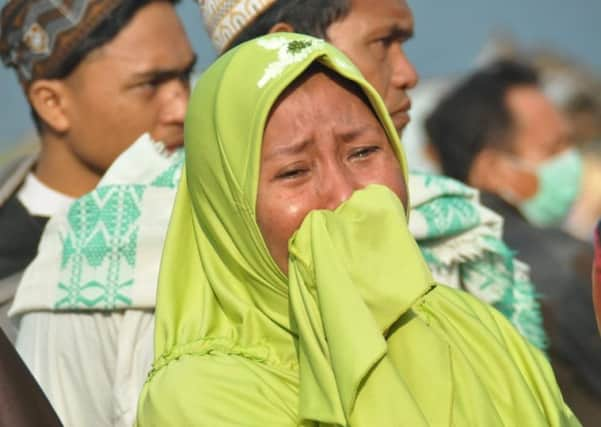Indonesia tsunami: 200,000 people are in serious danger and need help


Are you paying attention? In this information age, the frequency and amplitude of the bombardment of our senses makes it a greater personal challenge than ever. However, the power of your attention can make a difference and can save lives.
Amidst the furore over Brexit and a plethora of other urgent national debates, my primary focus as the Disasters Emergency Committee’s representative is to get your attention, in this case on 200,000 people in Sulawesi who need urgent humanitarian assistance in the wake of the recent earthquake and tsunami.
Advertisement
Hide AdAdvertisement
Hide AdThe long-held reputation and effectiveness of the DEC and its 14 UK members is based in large part on our attention to attention. The unique relationship we have with the media and the main UK broadcasters – the BBC, ITV (STV), Sky, Channel 4 and Channel 5 – is sustained by the relatively rare occasions that we collectively ask the broadcasters to give us free air time to make a joint public appeal. Whilst there are serious emergencies happening seemingly every week around the world, there is of course a risk of ‘attention fatigue’ and diminishing the effectiveness of this life-saving coalition if we ask too often.
Three weeks ago, reports emerging from the shattered infrastructure of Sulawesi quickly brought home the terrible destruction wrought by the terrifying earthquake and subsequent tsunami that slammed into the city of Palu a few days earlier. The DEC leadership met and agreed with the broadcasters that there would be an appeal.
If you saw the appeal video, you will have seen truly distressing images of the force of nature at its worst. More than 2,000 people killed, more than double that missing presumed dead, buried in rubble or earth which turned to liquid mud. Ten thousand people were injured, 200,000 are still in serious danger. They urgently need thousands of gallons of clean water, basic food, medicines and other health supplies. Imagine trying to find shelter and support for the people of a city the size of Aberdeen, or every household across the Highlands if they’d been made homeless overnight, with hospitals, power and water systems destroyed.
I’m delighted to report that we have managed to capture the attention of many. Thanks for that goes not only to the broadcasters, but the wider media in Scotland and this paper and others in Johnston Press. We all have our issues with media agendas that challenge our world view and ‘fake news’ is a rampant menace, but we can all too easily forget how strong a force for good the national press can be if it captures our attention at times like this.
Their role in a strong, internationally aware, civic society should not be underestimated. We must also praise the Scottish Government and a number of Scotland’s leading companies who have either donated directly or helped us gain the attention of their staff or customers and encouraged them to get behind us. Once again Scotland has shown it has a big heart, in keeping with the country’s proud history of humanitarianism.
This huge collective effort has now raised more than £1.5m in Scotland and £17m across the UK. Much more is needed but we’re proud of every donation. We have come to use the phrase ‘pay attention’ as we recognise that through that act we are giving something of ourselves to others. We thank you for your attention.
Donate at dec.org.uk, phone 0370 60 60 900 or text SUPPORT to 70000 to donate £5.
